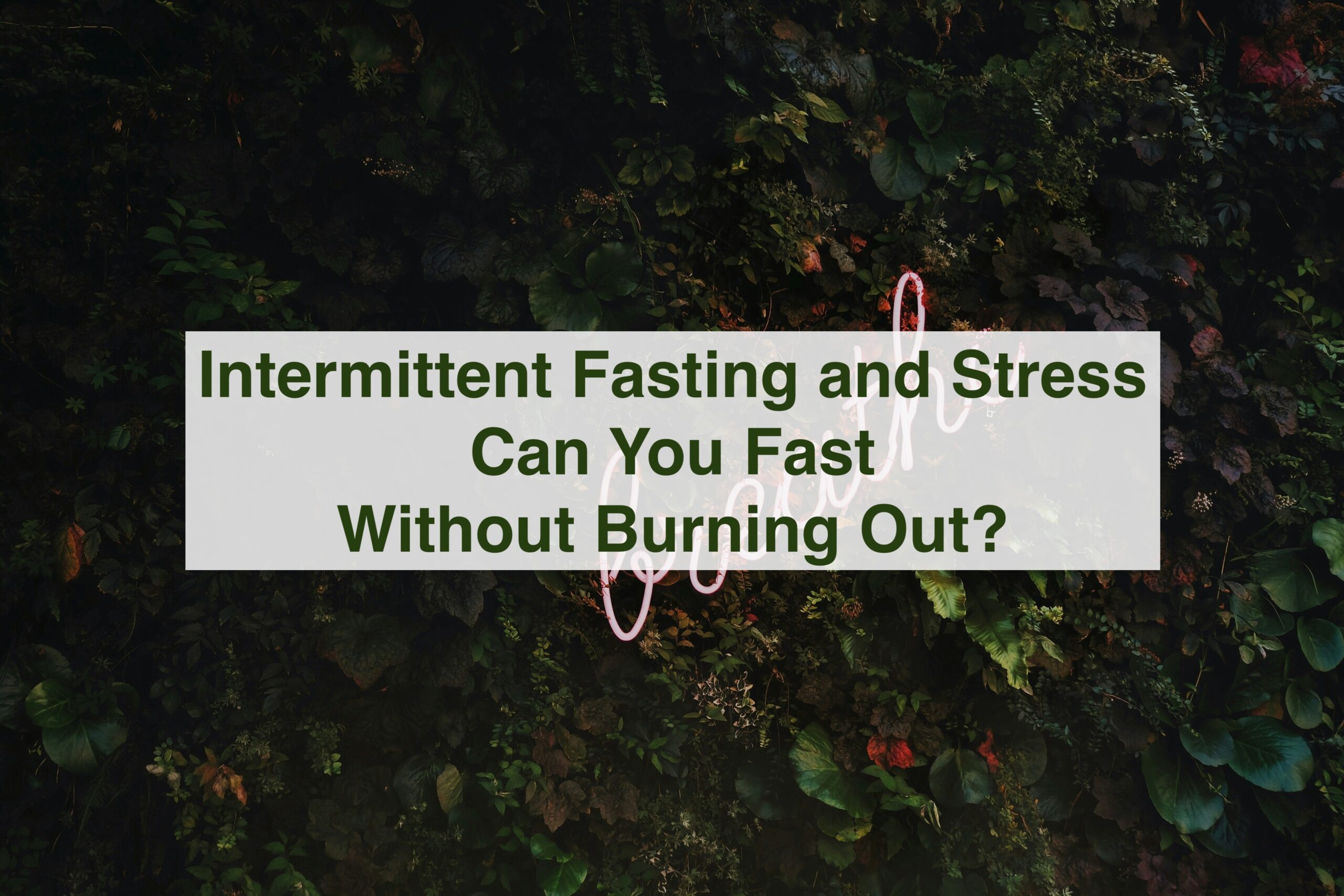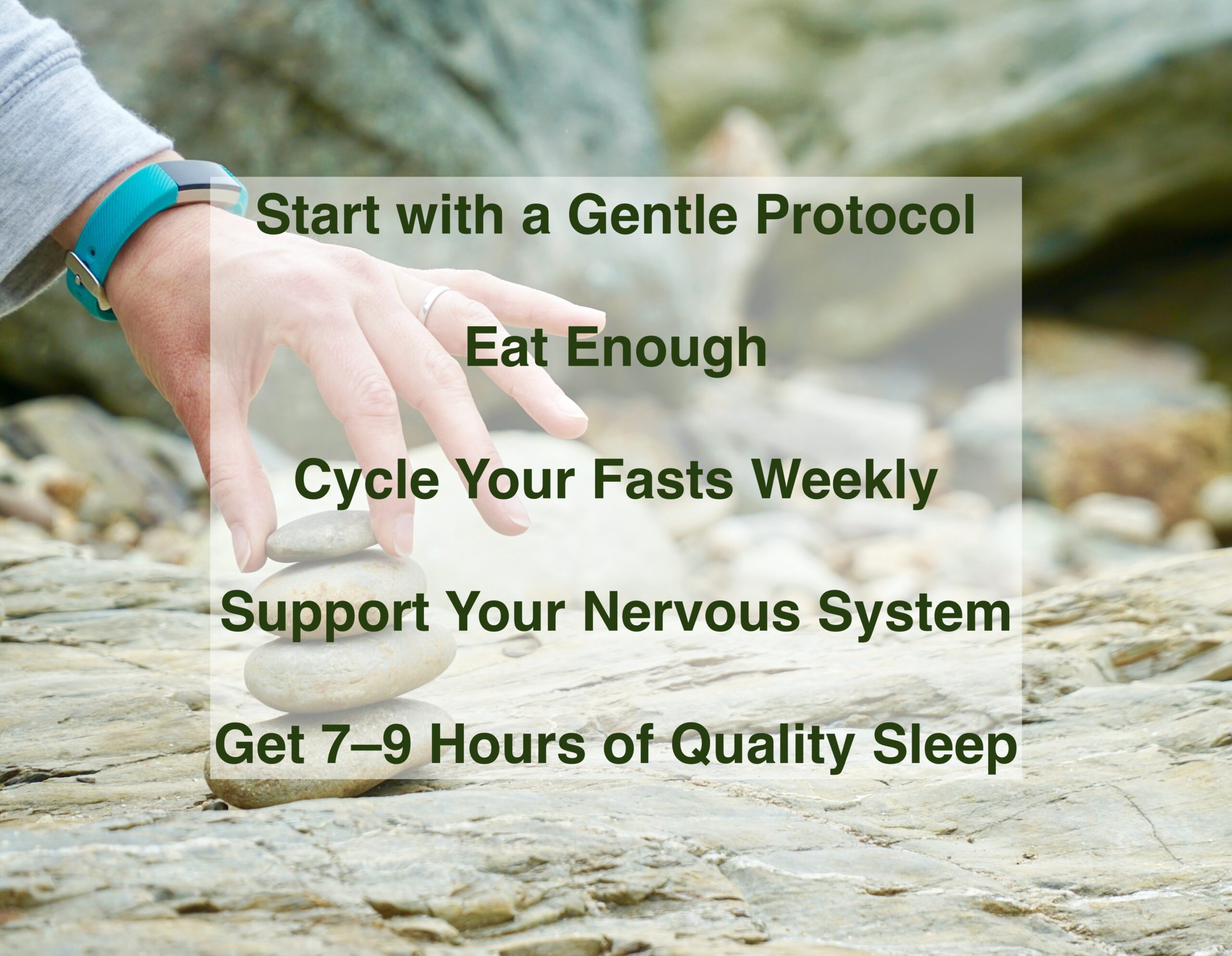
Intermittent Fasting and Stress: Can You Fast Without Burning Out?
Intermittent fasting can be life-changing — but if your body is already under stress, fasting the wrong way can actually backfire.
Burnout. Fatigue. Mood swings. Hormonal imbalances. Sound familiar?
In this post, we’ll break down the relationship between fasting and stress, and how to fast smarter — not harder.
Fasting Is a Stressor — And That’s Not Always Bad
Fasting is a form of hormetic stress — a small stressor that can make your body stronger if the total stress load is managed.
The issue? Most people already deal with:
- Work pressure
- Poor sleep
- Overtraining
- Emotional stress
- Under-eating
When fasting gets added to that overloaded system, the result isn’t transformation — it’s burnout.
How Fasting Affects Your Stress Hormones (Cortisol, Adrenals, and More)
Here’s what happens hormonally when you fast:
- Cortisol rises (this is normal in small amounts)
- If you’re under-recovered, cortisol stays elevated
- Chronically high cortisol = fat storage, sleep disruption, low mood
- Over time, this can affect thyroid health, blood sugar regulation, and cycle health (especially in women)
Signs your fasts are too stressful:
- Waking up tired despite sleep
- Hair shedding or cold hands
- Feeling edgy, wired, or moody in a fasted state
- Intense cravings or rebound eating
Who Should Be Cautious With Aggressive Fasting
If you fall into any of these categories, proceed with care:
- Women with hormonal imbalance or irregular periods
- People under high psychological or work stress
- Those recovering from burnout or adrenal fatigue
- Underweight individuals or history of disordered eating
- Anyone who’s chronically under-eating or over-training
Remember: Fasting should be a tool, not a punishment.
How to Fast Without Triggering Stress or Burnout
Here’s how to balance the benefits of fasting without adding too much stress:
1. Start with a Gentle Protocol
→ 12:12 or 14:10 is enough to see benefits
→ No need to jump into 18:6 or OMAD right away
2. Eat Enough During the Eating Window
→ Prioritize protein + healthy fat
→ Don’t under-eat: fasting isn’t calorie restriction, it’s timing
3. Cycle Your Fasts Weekly
→ 2–3 days of longer fasts, 2–3 days of relaxed eating windows
→ Especially important for women and high-stress individuals
4. Support Your Nervous System
→ Deep breathing, walking, cold exposure, morning sunlight
→ Practice parasympathetic activation techniques post-fast
5. Get 7–9 Hours of Quality Sleep
→ No recovery = no results
→ Create a wind-down routine and cut screen time before bed

The Role of Nutrition in Managing Fasting Stress
You can’t fast your way out of poor nutrition.
- Eat balanced, whole-food meals when you do eat
- Support adrenals with sea salt, potassium, magnesium
- Use mineral-rich broths or adaptogens like ashwagandha if needed
Pro tip: Break your fast with protein + fat, not sugar or refined carbs. This prevents blood sugar crashes that increase stress.
Client Case: Fasting Without Burnout Is Possible
Anna came to me feeling exhausted and stuck after 2 months of OMAD. We moved to a 14:10 cycle then a 16:8 cycle. We improved her meals, and added breathing exercises. She started to sleep deeper, her mood lifted, and she lost stubborn weight.
Anna said “I didn’t realize how hard I was pushing myself. Once I stopped trying to be perfect with fasting, everything started working better.”
The Ideal “Low-Stress” Fasting Day (Sample Day Plan)
7:30 AM: Wake up + hydrate with sea salt water
8:00 AM: Gentle walk, no coffee yet
9:00 AM–12:00 PM: Focus time (optional black coffee)
12:30 PM: Break fast with grilled chicken + avocado + sautéed greens
3:30 PM: Protein-rich snack or smoothie
6:30 PM: Final meal: salmon, sweet potatoes, steamed broccoli
9:30 PM: Evening wind-down + breathwork
Mistakes to Avoid while Fasting
Fasting when underslept or over-caffeinated
Skipping meals on high-demand days
Using fasting as a crash diet
Ignoring biofeedback like irritability or fatigue
Conclusion: Fast From a Place of Balance, Not Burnout
Fasting is powerful — but your body needs to feel safe to burn fat, regulate hormones, and heal. The best fast isn’t the most extreme. It’s the one you can sustain, recover from, and repeat with joy.
Let’s Build a Resilient Fasting Plan for Your Lifestyle
Get the benefits of intermittent fasting — without the stress, burnout, or hormonal crash.

Ready to Break Your Fasting Plateau and Get Results?
Work with me to build a tailored fasting strategy that combines food, mindset, metabolism, and habits for real, lasting results



